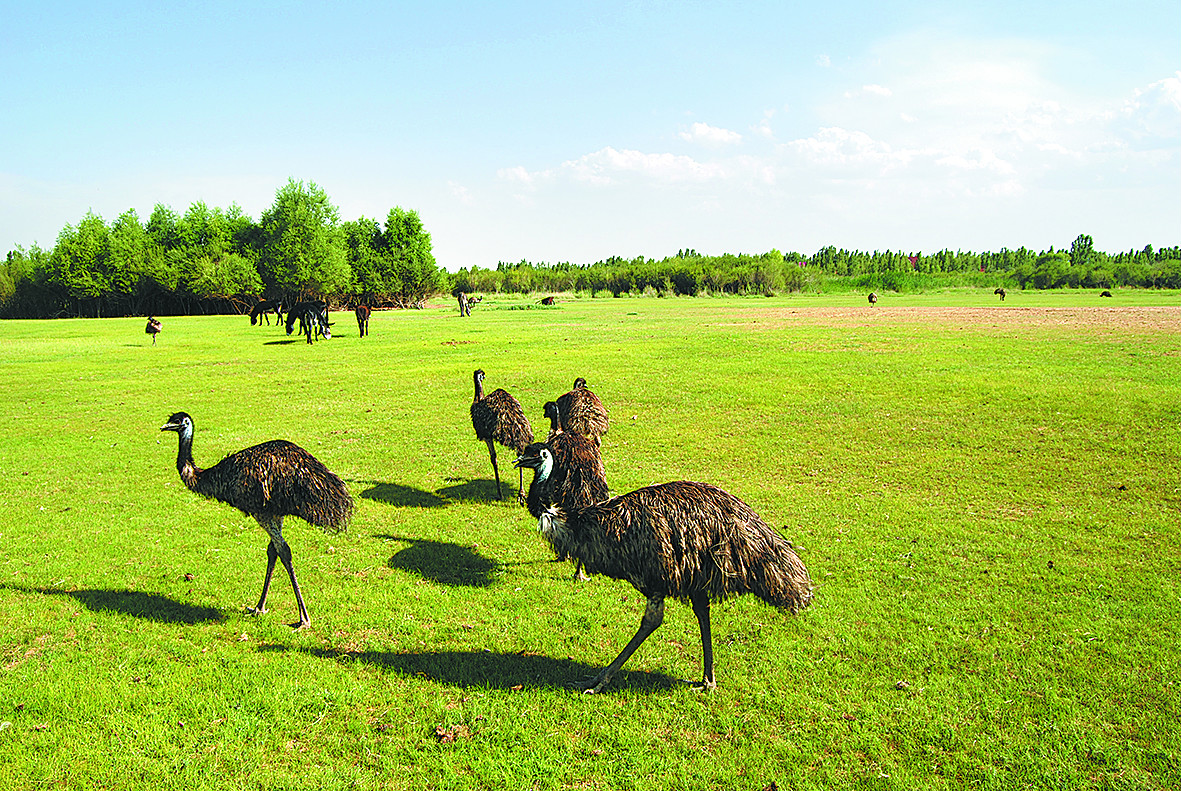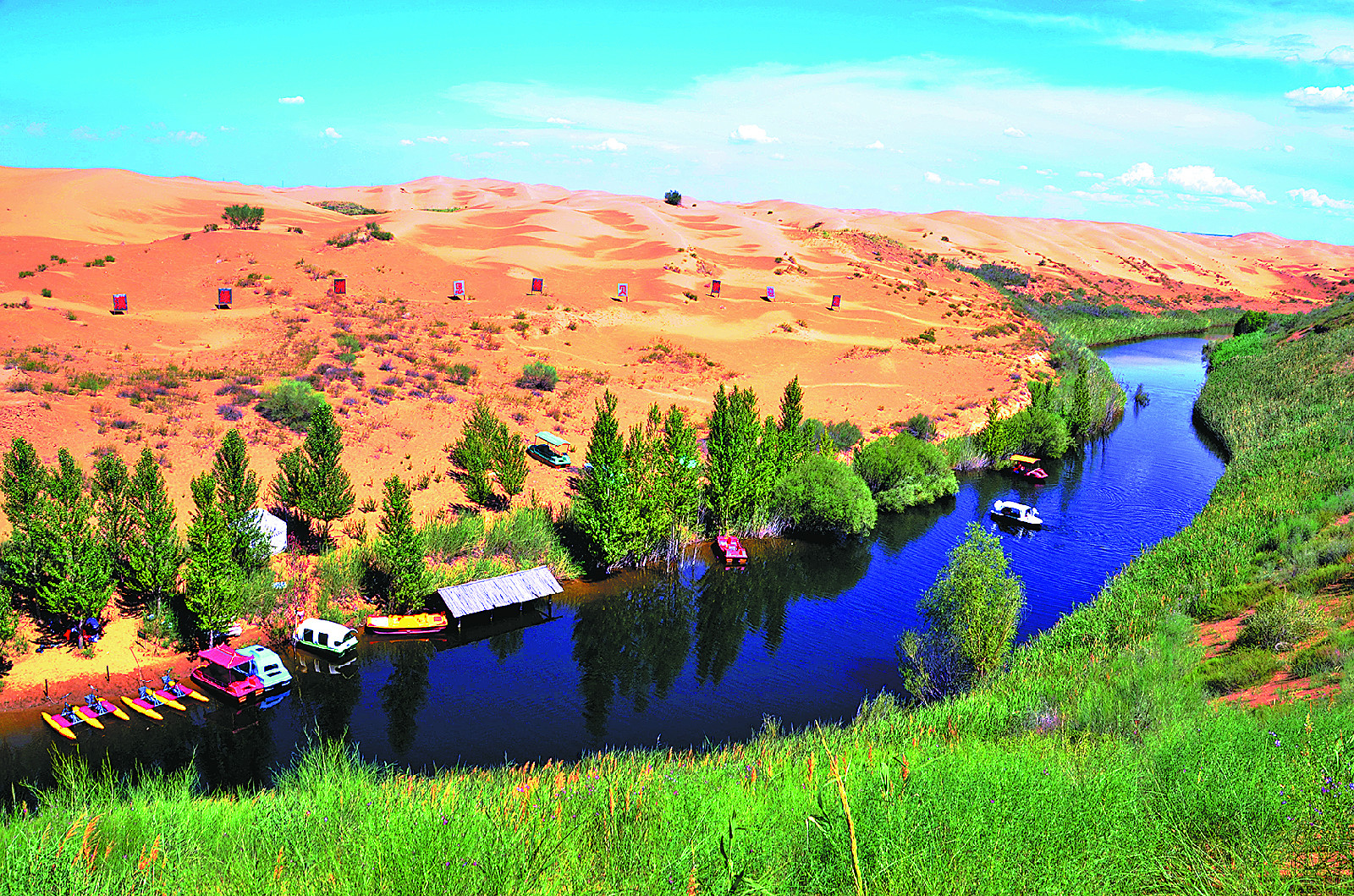Intl cooperation improves ecosystem
Updated: 2017-09-04 (chinadaily)  Print
Print 



Engebei, a national ecological development demonstration area in the Kubuqi Desert in Ordos, the Inner Mongolian autonomous region, is calling out for international cooperation in desertification control.
The 20,000-hectare region was once a lush, fertile grassland in ancient times, as its name indicates — in Mongolian, Engebei means safety and blessing.
Yet due to wars, floods, excessive deforestation and overgrazing, the former flourishing grassland was reduced to a desert and abandoned by local farmers, that is, until the ecological demonstration area was established in 1989.
That year, Wang Minghai, a former senior executive of a local cashmere manufacturer, led a team of desertification control volunteers to develop the recycling industry in Engebei. Wang was later named the director of the demonstration area.
Over the past decades, they have invested tens of millions of yuan in greening the desert, building a reservoir and lakes, and keeping goats and ostriches.

Ostrich breeding is a pillar sector of the local economy. [Provided to China Daily]
“As human beings broke the balance in the ecosystem, they are liable for recovering it,” Wang told Beijing-based Guangming Daily. “It is society’s obligation. One person alone can’t achieve much.”
More and more volunteers have joined the team over the years, including Toyama Seiei, a late renowned agronomist from Japan.
Toyama began visiting China in the 1980s. On a visit to Engebei at the invitation of the Inner Mongolian government in 1990, the then 84-year-old was interested in the area’s development plan and decided to work with Wang’s team as a chief instructor.
From that point on, Toyama stayed in Engebei for more than half of each year and spent roughly 10 hours a day working for more than 10 years, Chinese media reported.
His coaching helped to increase the tree survival rate from 20 percent in the initial stages to 80 percent.
After he returned to Japan, he was busy campaigning for desertification control, calling on his compatriots to join in the environmental efforts in China.
The environmental issue is beyond boundaries and requires joint efforts by the international community, Toyama told Chinese media. Japanese people volunteering to green the desert in neighboring China are also helping themselves, he said.
Toyama also founded the Japan Association for Greening Deserts in 1991 and organized groups of Japanese volunteers to plant trees in Engebei.

A lake in the Engebei area in Ordos evidences locals' environmental efforts. [Photo provided to China Daily]
More than 7,300 Japanese volunteers participated in the transnational environmental campaign in Engebei from 1991 to 2004, donating approximately 2 million yuan ($300,130) and planting more than 3 million trees.
Toyama’s story has been widely acclaimed both in China and abroad, winning him a series of honors and awards, including the Ramon Magsaysay Award 2003 for Peace and International Understanding.
The Inner Mongolian government has granted him the status of honorary citizen. Toyama died at the age of 97. He told his teammates on his deathbed that he wished he could once again stand on a sand dune.
According to his will, half of his ashes were left in his homeland and the other half were buried in Engebei, where the Ordos government built the Toyama Seiei Museum to memorialize the environmental veteran.
After Toyama’s death, throngs of volunteers from Japan continue his work in Engebei every year, Wang said, who has already retired from his position.
The oasis of Engebei is now home to a village of more than 300 residents.





 Ordos Impression
Ordos Impression Ordos WeChat
Ordos WeChat Ordos Reported
Ordos Reported
